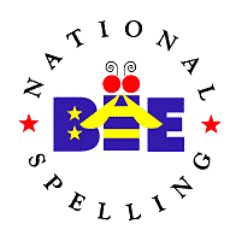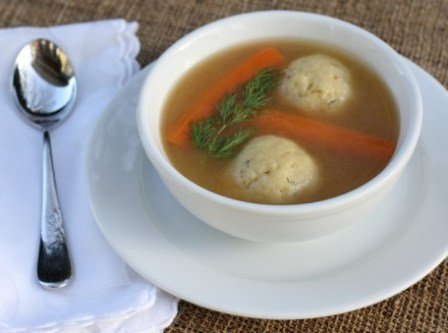May 31, 2013, - 11:50 am
I Call Foul on the National Spelling Bee – Left-Wing Spelling Police Get it Wrong on “Winning” Word
Last night, Arvind V. Mahankali, the 13-year-old who won the Scripps National Spelling Bee. But I call foul on this. And there’s a lot of political correctness involved–the attempt to water down English along with our national borders and everything else.



You see, Mahankali won the Spelling Bee by “correctly” spelling the word, “knaidel.” But, in fact, there is no correct spelling of that word because it’s transliterated from Yiddish–the German/Hebrew hybrid language used by mostly Ashkenazic Jews primarily back in Europe. If you’re like me–a Jewish kid who grew up in a knowledgeable Jewish family in America, pre-2000s, you know the word. My mother and both my grandmothers made chicken soup with knaidels or kneidlach (the Yiddish plural of the word), which are essentially matzoh (or matza or matzah) balls–light, porous, doughy Jewish versions of soup croutons (and much more delectable and fun). If you’ve had chicken soup with matzoh balls, you’ve had knaidlach or k’naydlach (or however you want to spell it).
But there is NO correct English spelling of the word. In fact, you can spell it knaydle, or keneidle, knaidl, or k’naydel (and many other ways–all of which you’ll find on Google). It’s neither an English language word or a word that was originally spelled in any particular way in the English language, since it doesn’t come from that language, nor was it originally written using the English alphabet. There is NO correct English spelling of the word, just as there isn’t, for example, a correct spelling of Mohammed or Muhammad or Mohamad (with apologies for the comparison of a nice Jewish soup crouton to the name of a persecuting warrior who has inspired 1.8 billion worldwide to either engage in savage terrorist killings and or reprehensible behavior or morally support those who do).
So, who are the English spelling police who decided that “knaidel” is the correct spelling of a non-English word? It’s like deciding what is “art.”
And that goes to my other objection to the use of the word, “knaidel” or “knaydle” or “keneidel,” any of which is a correct spelling. If this is a “National” spelling bee–the National is supposed to refer to the nation of the United States of America (though the name of the nation in reference is strangely, conspicuously absent, likely by design)–then pick words that are genuinely English words and have distinct and certain English spellings. Yes, some foreign words have legitimately become part of the English vernacular–even some Yiddish words that have definite spellings in the English language, such as the word, “chutzpah,” which means utter nerve or gall (but can be good or bad, depending). Or words like, “copacetic“–the origins of which are reportedly from Black and other New Yorkers repeating Orthodox Jews who used the Hebrew phrase, “Kol B’Seder,” which means “everything’s in order” or “everything’s okay.”
But a National Spelling Bee in America should use English words. And, instead, the National Spelling Bee–with the use of words like “knaidel” and other foreign non-English words–is a not-so-veiled attempt to sully the English language and pretend–a la the left in America–that English is not the national language and that English is not English, but a combination of all foreign languages which are all just as equal. It’s very stark political correctness and the promotion of liberal ideas on American citizenship.
There are plenty of obscure, distinctly English words. But that is not what the Scripps Howard people want. They and those they’ve appointed to run the National Spelling Bee want to impress upon you that there is no distinct English (or national American language), just like the same ilk want you to know there is no distinct American culture, no distinct American citizens, no distinct national BORDERS, no distinct American law, and so on.
As much as the politically correct Spelling Police want to tell me that knaidel–like other foreign words–is an English word and has a distinct English spelling (it does not), they’re full of it. Knaidel or Kenaydl or draidel(the yiddish word for the spinning top Jews play with on Chanukah or Hannukah or Chanukkah, which can also be spelled, “dreidl,” “draydel,” and a gazillion other ways) ain’t an English word. And there ain’t no proper English spelling. Yes, I am a very proud Jewish-American and I’m honored that our dying European language has been honored with the winning spot in the National Spelling Bee. We Jews have contributed a lot to America from before its founding to date, including many foreign contributions to the English language. Tthere aren’t better words (in my book) than chutzpah, schmuck, putz, schmendrick/shmenrik/shmendrick, and zhlub/schlub/shlub. You’d be hard-pressed, though, to show that “knaidel” has reached the status of any of these and is part of the regular English vernacular, used by anyone other than Jews and cooks.
The National Spelling Bee should be about spelling distinctly ENGLISH words, not Indian words, not Asian words, not lesbian lacto-ovo vegan Muslim Egyptian colony artists’ words. But, unfortunately, that’s what the “National” Spelling Bee has become: a contest to spell obscure foreign words, whose transliterated spellings aren’t distinctly one way and whose origins are neither English nor American . . . or even from Latin or any of the Western romance languages. Yes, it’s yet another attack on the West and Western culture that those words are no longer good enough for a “National” Spelling Bee taking place in the nation that once was the United States of America.
So, with all due respect to Arvind Mahankali–the latest genius Indian-American kid to whip other American kids’ asses at spelling–you didn’t win the National Spelling Bee legitimately.
‘Cuz I can properly spell k’naydl a jillion different ways. Is it out of proportion to say that maybe the runner up should hire some lawyers and challenge this?
Today, the winner topped the National Spelling Bee by “correctly” spelling the benign “English” word, “knaidel.”
But tomorrow, it will be the malignant “English” word, “jizya” or “sharia” (or is that, shariah with an “h”?).
Tags: Arvind Mahankali, Arvind V. Mahankali, distinctly English, english, English language, English vernacular, English words, Jewish, Jews, knaidel, knaidlach, matzoh ball, matzoh ball soup, Scripps National Spelling Bee, Spelling Bee, vocabulary, words, Yiddish


Debbie, right on, as usual, all your points well taken. Speaking of Yiddish, my mother, who was the progeny of a Ukrainian tailor and a Polish seamstress who met and got married at Ellis Island in 1905, used some of that language around the house when I was growing up. Got it from her mother.
Also, thank you for correcting my impression of the spelling for the word zhlub. I always see it spelled schlub. Who knew?
But the salient point is that you . . .
MADE ME FREAKING HUNGRY!!! I haven’t had some good Jewish food in a LONG time. We have a place in town called the Shalom Bakery. Perhaps got its name from Jews, as Puerto Rico is a melting pot as much as anywhere else in the world, and Sephardic Jews have emigrated here on at least two occasions. Unfortunately, the Shalom Bakery is not run by Jews, and does not offer such fare. There are places that serve pretty good pastrami here, but unfortunately there is no chopped liver and a kasha knish to go with it.
We do have synagogues in Puerto Rico, which makes me believe there has to be a place where I can get the real thing. However, I don’t drive, and I don’t think those synagogues are within easy reach.
So, THANKS A LOT FOR MAKING ME HUNGRY!!! LOL!!! Have to head outside with the machetes and continuing slashing and slamming, cleaning up a farm that has seen no work for 10-15 years. I have plenty of free food here too, as I could cover many letters of the alphabet in either English or Spanish with what grows here.
Unfortunately, kasha knishes and chopped liver do NOT grow on trees. GRRRRRRRRR!!!
AfPR: It can be spelled, “schlub” (the Americanized version) or any other way, as there is no correct spelling of Yiddish words, but it’s really pronounced more like “zhlub.” So you make my point again. DS
Alfredo from Puerto Rico on May 31, 2013 at 12:07 pm